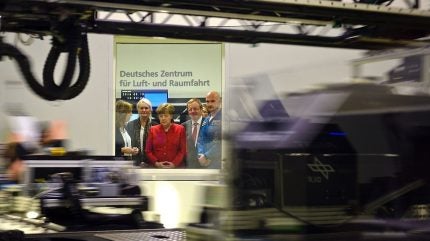

Two sectors – digital, software and technology, and life sciences – come out on top for foreign direct investment (FDI) attraction in Germany and France based on Investment Monitor’s interactive maps of the investment promotion agencies of the respective countries.
Overall, Germany has several sectors driving FDI into the country, with engineering and life sciences having a slight lead on digital, automotive, energy and logistics.

Discover B2B Marketing That Performs
Combine business intelligence and editorial excellence to reach engaged professionals across 36 leading media platforms.
In France, digital and life sciences lead, followed by energy and food, agribusiness and beverage, with both manufacturing and logistics smaller concerns when compared with Germany.
While manufacturing – one of the top sectors for FDI attraction in Germany – was dealt a significant blow during the Covid-19 outbreak, the large presence of foreign investors in the life sciences and digital sectors means that prospects for FDI into the country remain positive.

US Tariffs are shifting - will you react or anticipate?
Don’t let policy changes catch you off guard. Stay proactive with real-time data and expert analysis.
By GlobalDataThe same can be expected in France, were shortfalls in sectors such as tourism – which is third in terms of IPAs’ FDI attraction – will likely be made up for by the strong presence of investment into the two aforementioned sectors: digital, software and technology, and life sciences.
Hamburg shows its resilience
Hamburg Invest reports that 2020 was a resilient year for local FDI. Some 9,504 jobs were secured or created, according to a spokesperson for the IPA.
“The focus of Hamburg Invest’s commitment in 2020 was once again on the topic of innovation, digitalisation and sustainability,” the spokesperson adds.
Despite Covid-19 causing a severe slowdown in new FDI operations in Europe, Hamburg managed to keep that slowdown to about 25%, versus a European average of 71%, according to UN figures.
The focus of Hamburg Invest’s commitment in 2020 was once again on the topic of innovation, digitalisation and sustainability. Hamburg Invest spokesperson
In 2020, the city of Hamburg attracted 59 successful settlement projects, against 77 in 2019, which was a record year for the city.
Among the successful foreign operations that materialised last year were American Ascent Aerospace, Norwegian EnergyNest, which is a start-up that has developed a thermal battery made of steel and concrete, and Swedish electric scooter manufacturer Vässla.
[Keep up with Investment Monitor: Subscribe to our weekly newsletter]
“Due to the multilayered effects of the Covid-19 crisis, Hamburg Invest’s international settlement business has changed significantly,” says the spokesperson. “Travel activities, trade fair participation, roadshows with seminars, presentations and one-on-one meetings have been completely cancelled throughout 2020.
“Against the background of the ongoing travel and event restrictions in the current year, it can be assumed that this business area, in particular, will face a major challenge in 2021.”
France’s digital and life science lead
The digital and life sciences sectors are the key focus for French IPAs, followed by energy and food, agribusiness and beverage – while manufacturing and logistics are further down the list compared with Germany.
France normally attracts high FDI volumes across all sectors, but it experienced a drop in inflows in 2019.
Like other European countries, in the wake of the pandemic outbreak the Ministry of the Economy and Finance stated on 1 May 2020 that biotech companies would be included in the list of technologies that are subject to foreign investment screenings by the government.
During the initial pandemic outbreak, the government also announced a decree to lower from 25% to 10% the threshold for stakes acquired by non-EU/EEA investors in French-listed companies that are active in the sectors normally subject to FDI screenings.
The Ministry of Economy had indicated that the legislation will be active until 31 December 2020, but before this deadline it was announced that the Covid-19 interim rules on foreign investment would be extended to 31 December 2021.
Germany took a similar approach to protect the life sciences sector from non-EU investors, requiring them to notify acquisitions of shares of more than 10% in German companies that develop or manufacture personal protective equipment.
While this protectionist stance may limit the levels of investment coming into the targeted sectors from outside the EU, local IPAs are likely to continue betting on both the digital and life sciences sectors to attract FDI in a post-Covid world.
[See also: Will tech become the FDI driving force across Iberia?]
Hamburg Invest is a partner company of New Statesman Media Group.





